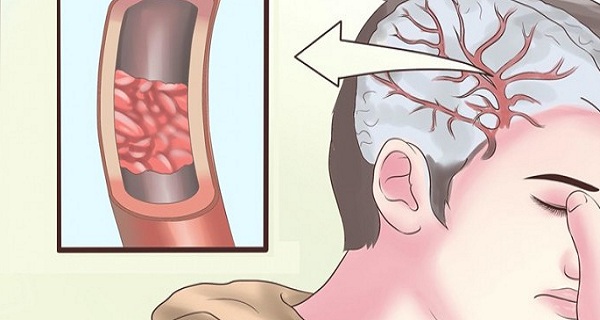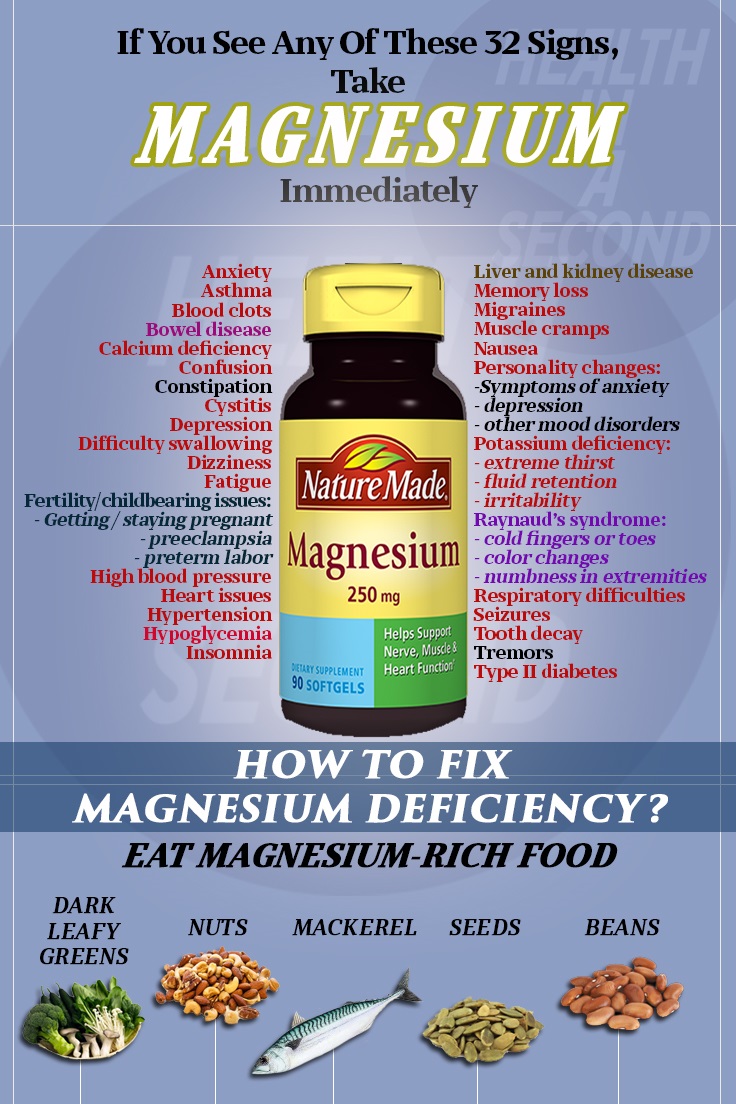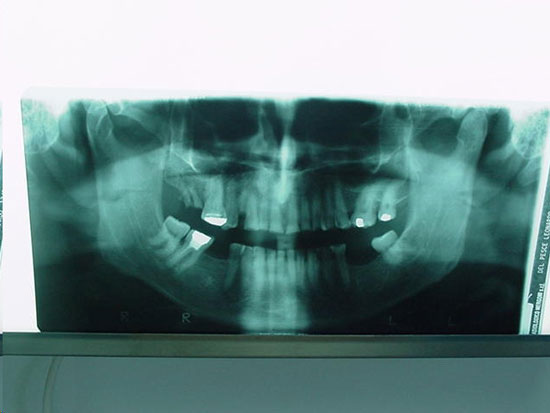Lack of magnesium can change a lot in your body. It can disturb your overall health and make you feel a lot of bad things, from anxiety to confusion.

Decrease or deficiency of magnesium is the most common health issue that showed over the past few years, simply because our diet has drastically changed. Today’s food is poor with magnesium, and what is even worse, we don’t take into consideration that this mineral is very important for our body.
Why Is It Hard to Get Recommended Dosage of Magnesium?
In the past, it was very easy to get the daily dosage of magnesium trough food, but times have changed. Earlier, magnesium was very present in the soil, but modern farming practices left small amounts of magnesium in it.
Also, people don’t eat healthy food and avoid food such as nuts, dark leafy greens, mackerel, seeds, and beans. These foods are rich in magnesium.
32 Signs of Magnesium Deficiency
- Anxiety
- Asthma
- Blood clots
- Bowel disease
- Calcium deficiency
- Confusion
- Constipation
- Cystitis
- Depression
- Difficulty swallowing
- Dizziness
- Fatigue
- Fertility/childbearing issues: Getting or staying pregnant, preeclampsia, preterm labor
- High blood pressure
- Heart issues
- Hypertension
- Hypoglycemia
- Insomnia
- Liver and kidney disease
- Memory loss
- Migraines
- Muscle cramps
- Nausea
- Osteoporosis
- Personality changes: often similar to symptoms of anxiety, depression, and other mood disorders
- Potassium deficiency: may cause extreme thirst, fluid retention, and irritability
- Raynaud’s syndrome: may cause cold fingers or toes, color changes in skin due to temperature changes, and numbness in extremities
- Respiratory difficulties
- Seizures
- Tooth decay
- Tremors
- Type II diabetes
How To Fix Magnesium Deficiency?
Eat magnesium-rich food (listed above), or take magnesium-containing supplement, but consult your doctor first.





















